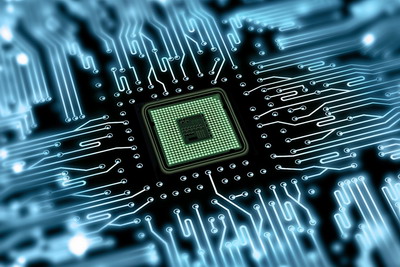After more than 50 years of absolute domination, the CPU finally ushered in a new challenge, the challenger is the SoC. In the past few decades, you have to walk into a computer store and pick a brand new computer based on the performance of the CPU. Now, you are wandering around, whether it's a smartphone or a tablet, and setting up your laptop is starting to use SoC. Don't panic. In fact, the CPU and SoC are very similar. You know that all knowledge about CPUs also applies to SoCs.
What is a CPU?
Although people have always emphasized CPU technology and performance, the reality is that the CPU is just a super fast calculator. The CPU fetches data from memory and then performs a series of mathematical operations (plus, multiply) or logical operations (and, or, not) to process the data. The more expensive/complex the CPU, the more powerful it is, and the faster the computer runs.
But the CPU can't be equated with a personal computer. If you want to be a computer that can be operated, you need the help of other chips to work. You need memory to temporarily store data, audio decoder chip to decode and amplify music, graphics card is responsible for outputting the rendered image to the display, and hundreds of parts are in their respective positions, among them If any chip has a problem, the computer will "strike."

What is SoC?
The SoC is an abbreviated form of System-on-chip, and the Chinese name is a system-on-chip. Its biggest feature is its high integration. It integrates many important chips we mentioned above into a single silicon chip. In addition to the CPU, the system-level chip also includes graphics card, memory, USB host chip, power management circuit, wireless chip (Wi-Fi, 3G, 4G LTE, etc.). As we said before, what does a single CPU chip do? No, but a system-on-chip is entirely possible to use directly as a computer.
The difference between SoC and CPU
First, the biggest advantage of SoC is the size of the chip. The area of ​​a full-featured system-on-chip is only slightly larger than a single CPU. If you want to use a CPU to build a computer, it would be more difficult to produce a computer with an area of ​​no more than 10 square centimeters. This is because you have to leave enough space for other components. SoC is much simpler, we can put this function and the basic complete chip on the smartphone or tablet, and then there is still a lot of space for us to put a battery with a small capacity!
Due to the high integration of SoC chips and short wiring, its power consumption is relatively low. In the mobile field, low power consumption is the goal that manufacturers are constantly pursuing. At the same time, many chips are integrated together, and there is no need to configure more chips separately, which can effectively reduce the production cost, so the cost of using the SoC solution is lower.
Of course, the biggest drawback of SoC is the lack of flexibility. For ordinary computers, users can choose to upgrade new CPUs, graphics cards or upgrade memory capacity and so on. But for your smartphone, you can't do anything about it. Maybe you can buy different SoC chips in the future, but things like upgrading memory and even if you can achieve it, the cost and effort you spend is not worth it.
CPU boom is declining
But eventually the SoC will completely replace the CPU. We are now seeing clues on AMD's Llano and Intel's Ivy Brige processor. These chips integrate the memory control chip, PCI E master and graphics core inside the processor. Of course, for the general-purpose CPU market, the demand will still be great, especially in the server and supercomputer market, power consumption and space are not a problem, performance is the decisive factor. But the future computer market belongs to mobile devices, and all SoCs have a glorious day.
Electric Infrared Ceramic Cooker
Electric Infrared Ceramic Cook,Ceramic Cookware,Electric Ceramic Cooker,Kitchen Ceramic Electric Infrared Cooker
Shaoxing Haoda Electrical Appliance Co.,Ltd , https://www.zjhaoda.com
